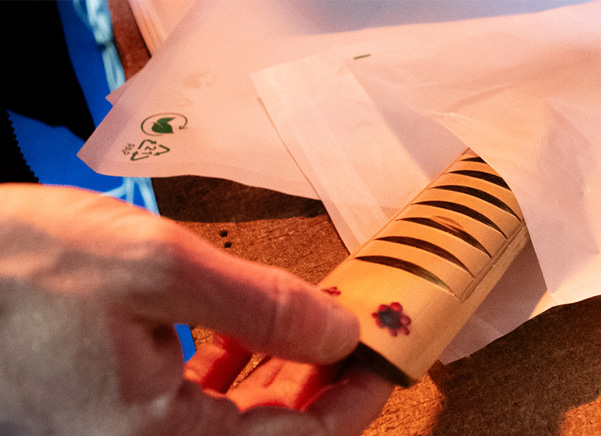Introducing the Percussion Plus Honestly Made Shipibo shaker
Responsibly sourced and versatile, the Shipibo shaker is the perfect addition to any percussive ensemble, and great for teaching young musicians about traditionally made instruments.
Featuring a beautiful design which varies with each shaker, a feathered top and a wooden stick to hold, it is easy to play and creates a lovely percussive shaker sound.
The Percussion Plus Honestly Made Shipibo shaker is sourced using Fair trade principles. See below for more information about the Honestly made range of musical instruments from percussion plus.
These items are musical instruments, not toys, and there may be many small parts on, or in, some of them. Younger players should use them with supervision.
About the Shipibo tribe
The Shipibo shaker origins are from the Shipibo tribe located in the remote Peruvian amazon, with the intricate designs of the shakers often depicting their animals, plants and native art.

Our sustainable packaging
A key principle of Honestly Made is sustainability, and we’ve modified our packaging of these items accordingly. Many products are simply labelled with a recyclable cardboard tag and shipped exactly as we received them, but for cases where extra packaging is required, we have also adopted fully recyclable and biodegradable glassine paper bags.
Naturally, we don’t want to waste our pre-existing packaging material, meaning you might still receive some of these products in classic, non-glassine packaging. If so, rest assured that your order has contributed to our collective waste management mission.












